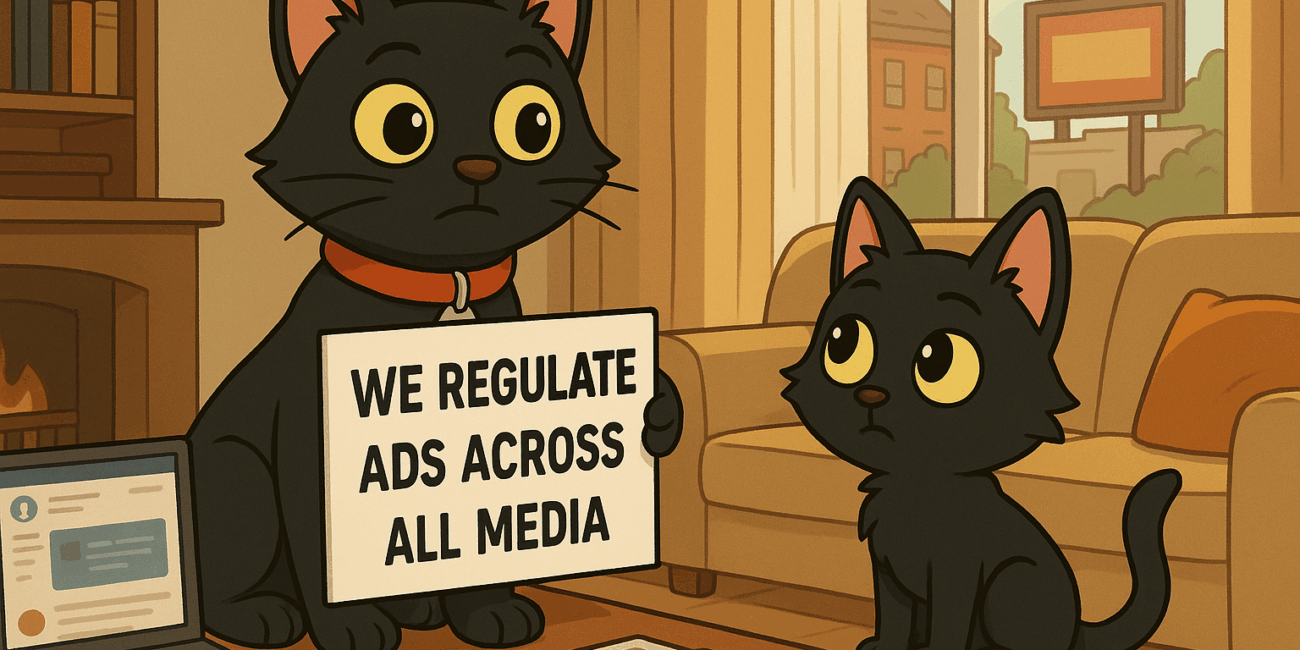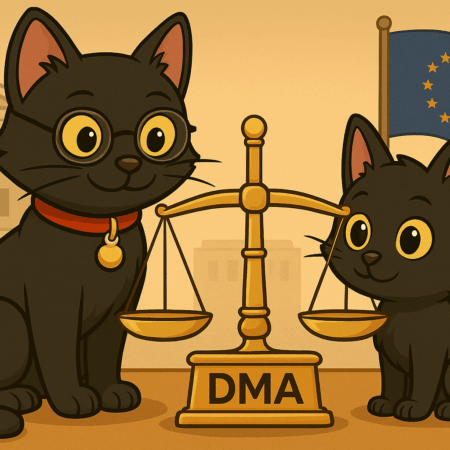Over the past week, advertising in the UK and Spain has shown two main currents: intensified regulatory scrutiny, going beyond what we previously reported, now with more eyes especially on influencer and political advertising; and shifts in media ownership in out‑of‑home (OOH) advertising. These are reshaping how advertisers plan both content compliance and channel strategy.
ASA’s slogan under fire — clarity vs ambition
In the UK, the Advertising Standards Authority (ASA) is experiencing public pushback over one of its own ad campaigns. The campaign claims that the ASA “regulates ads across all media.” Advocacy groups including the New Weather Institute, Badvertising and Adfree Cities have lodged a formal complaint, arguing this is misleading. They point out that there are numerous ad spaces outside the ASA’s regulatory reach — shop windows, certain hoardings, parts of airports, some forms of social media content, etc.
The ASA’s defence is that the wording refers to “all media” rather than “all ads,” and that the campaign is consistent with its remit. But critics say that the nuance will be lost on many members of the public, and that this raises questions about how regulators communicate their scope and limitations.
Although we spoke about this previously, in context of what else has been happening, this episode emphasises a growing tension: regulators want ambitious messaging to raise public awareness, but they risk eroding trust if claims are seen as exaggerating their powers. For advertisers and agencies, the lesson is that alignment with regulatory language — and clear disclaimers where appropriate — matters now more than ever.
Influencer marketing & global guide updated
Also in the UK (and of relevance to cross‑border campaigns in Spain), the law firm DLA Piper has released its 2025 edition of the Influencer Marketing Guide. This updated version covers 31 jurisdictions, with new additions, and emphasises evolving legal expectations around disclosure, labelling, and influencers being treated as advertisers under many local laws.
With regulators increasingly attentive to how influencers present content — especially content tied to financial, health, or children‑related themes — brands must ensure that partnerships with creators meet both legal and ethical standards. What counts as sufficient disclosure may differ substantially depending on jurisdiction.
Spain: OOH* change & media consolidation
In Spain, there was a significant development in out‑of‑home advertising: Clear Channel Outdoor Holdings has agreed to sell its Spanish OOH business to Atresmedia for about €115 million.
This acquisition is important for several reasons. Atresmedia is a major player in audiovisual media, which means it gains further leverage in cross‑media advertising offers (OOH plus TV/digital). For advertisers, this may mean more bundled deals, possibly better cross‑platform integration, and evolving standards for measurement. For OOH operators, the pressure to innovate (e.g. more digital displays, higher quality content, dynamic targeting) will increase to compete in a more consolidated market.
Regulatory pressure at EU level: influencer and disinformation laws loom
On the regulatory front, the Digital Fairness Act proposal (EU) has re‑aggregated attention this week. While not yet in force, it promises stricter rules around dark patterns, personalisation, contracts, and influencer marketing.
Also, existing EU regulation — such as the Transparency and Targeting of Political Advertising (TTPA, Regulation (EU) 2024/900) — is about to come into sharper effect, especially for major platforms and large media campaigns. For UK advertisers working in Spain or across the EU, these overlapping laws (Data, Consumer Protection, Advertising, Disinformation) mean compliance complexity is rising. Anticipating audits, transparency obligations, and potential fines is no longer optional.
Implications & what to watch
- Clarity in advertising and regulatory messaging is essential. Whether you are a regulator, brand or agency, the boundaries of claims need to be clear and understood by the public.
- Influencer partnerships must be managed with care: contracts, disclosures, choice of platform, and content must satisfy both local laws and public expectation.
- Media ownership and consolidation, especially in OOH and digital, will shift power dynamics. Advantage may accrue to those who can offer multi‑channel, especially cross‑media, integrated offerings.
- Regulatory changes at EU level will start to bite in practical terms. Brands should build compliance frameworks now to avoid disruptions.
*OOH Definition
OOH stands for Out Of Home Advertising. Out of home advertising is a marketing strategy intended to create brand awareness by creating impressions in real life as opposed to “in home” which would be digitally through television, computers and mobile devices.











